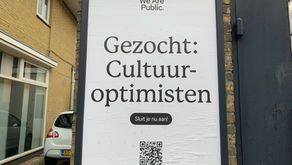Burntwood School, Wandsworth
- Judith Weir
- May 6, 2015
- 2 min read

I visited this 1800-strong all-girls’ comprehensive in South London at the invitation of their (excellent) music staff. It was part of my ongoing quest to get my head around the music curriculum in English schools. (Scotland, N Ireland & Wales, I’ll be along later…) With revision lessons in full swing I gained the impression that GCSE Music has certainly become more difficult in recent years, but emphasises breadth over depth. Head of music Elgar Clayton expertly reminded the students of all the areas they were meant to have basic knowledge of - from Lieder to Gamelan, Waltz to Disco via Bhangra, Programme to Film Music - and these are just the subjects my aged brain has retained, there were a great many more. A recently announced new AQA syllabus received widespread, jokey press attention for its inclusion of Beatles and Santana tracks; but if I had to teach for this exam,the return to a manageable and more thorough study of set works, whatever they were, would be welcome.
Our day ended pleasantly with some live music, hearing the school’s high-flying chamber choir, which has been successfully directed for many years by Debbie Lammin, singing music from ‘Hansel and Gretel’ in a workshop with the also Wandsworth-based National Opera Studio. (Memo to composers – a few more high voice operas like that would be useful). The school’s Principal Helen Dorfman is a convinced supporter of music and the educational benefits it brings. Burntwood (which became an Academy in 2013) even subsidises instrumental teaching – music in state schools doesn’t come much better than this. In conversation I was told (as I often am) that the problems are, not enough music teaching in primary schools; and constant chivvying from the authorities about spending more time on literacy and maths. I too think these are important, but as expressed in this video about the school choir, the educational and social gains from a focused engagement in music can be spectacular.
[Pictured – Burntwood’s new school campus, worthy winner of a Civic Trust Award, and honourable mention from The Concrete Society]






